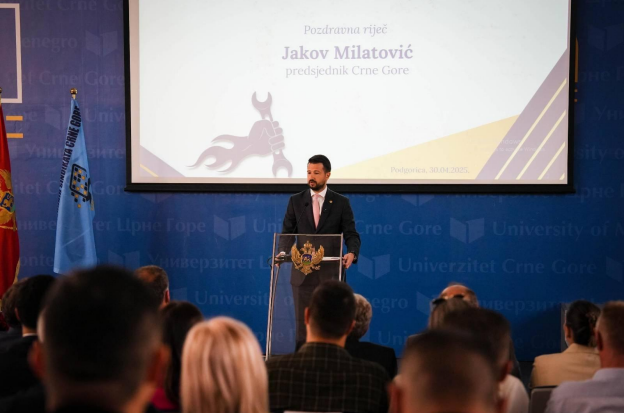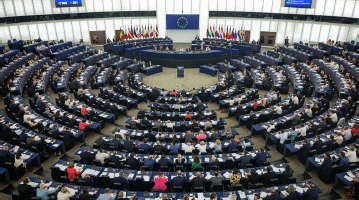President Jakov Milatović’s speech during the First May Syndical Academy paints a detailed and candid picture of the current state of workers’ rights in Montenegro. His message not only acknowledged the progress made over the years but also highlighted the serious challenges that remain. Milatović’s reflections provide an opportunity to consider the broader issues facing Montenegrin workers, the socio-economic inequalities, and the path forward for true societal transformation.
What stands out in Milatović’s address is his deep recognition of the struggles that workers have faced, not just in Montenegro, but across the Balkans, as they fight for fair wages, job security, and dignified working conditions. The President rightly acknowledged the significant role the Union of Free Trade Unions (USSCG) has played in advancing labour rights over the past two decades, positioning them as essential in the continued fight for workers’ protection. The fact that these rights have made significant strides over the years in part because of their tireless advocacy is important and speaks to the power of solidarity and collective action.
However, Milatović’s speech also shines a light on the stark inequalities that persist in Montenegro. He highlights a critical issue the discrepancy between the rich and poor. The gap between income levels, particularly in the northern and rural regions of the country, speaks volumes about the ongoing struggles that many Montenegrins face. The high level of poverty, especially among the unemployed and young people, who are increasingly looking for opportunities abroad, speaks to a broader issue of economic stagnation and systemic failure.
The President’s honesty about the challenges, such as the need for more effective implementation of labor rights, and the high level of financial hardship faced by a large portion of the population, creates a sense of urgency. His acknowledgment that wages, particularly in the private sector, remain too low for many citizens despite nominal improvements in average income reflects the truth that economic recovery and prosperity are not automatically translated into better living standards for everyone. This dissonance between the figures and people’s lived experiences is a significant point that often gets overlooked in political rhetoric. Milatović’s call for deeper systemic reforms is crucial. His stance on the need for stronger fiscal policies, along with a robust fight against corruption and organized crime, speaks to the heart of Montenegro’s economic challenges. It’s not enough to just raise the minimum wage or introduce short-term programs like “Evropa sad 1“; there needs to be a fundamental shift in how the economy operates, one that prioritizes long-term sustainability, inclusivity, and fairness for all.
From a personal perspective, Milatović’s remarks about the importance of workers’ rights and the need to make labor a source of dignity rather than uncertainty resonate strongly. Montenegro, like many post-socialist nations, continues to struggle with the remnants of old systems and the difficulties of transitioning into a market economy. This creates a precarious situation for workers, where job security is often at the mercy of political instability and corruption.
Ultimately, Milatović’s emphasis on a fairer society, where every citizen has the opportunity to live a dignified life, regardless of their job, social status, or political affiliations, is a powerful reminder of the work still to be done. Montenegro’s future lies in its ability to reconcile its aspirations for economic prosperity with the real, tangible needs of its people. The vision for a Montenegro where the dignity of work is upheld and where economic justice is not an ideal but a reality is something to strive for—especially in a country that has long been plagued by systemic inequalities.
Written by our correspondent A.A.



